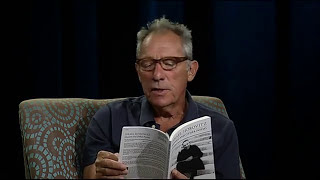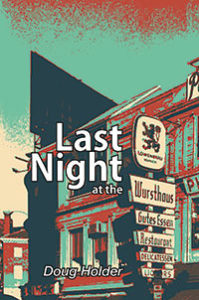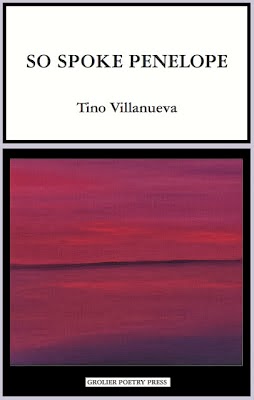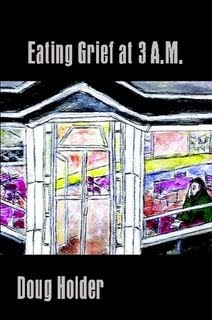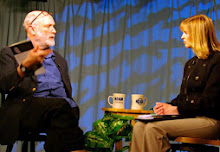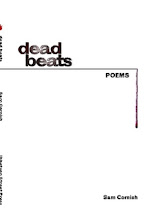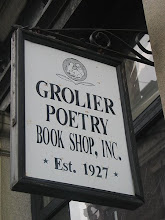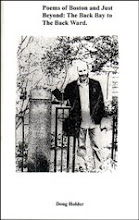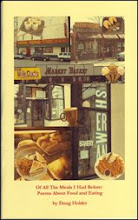 |
| Poet Gloria Mindock |
Pleasure Trout
by Gloria Mindak/Mindock
Newton, Mass: Muddy River Books, 2013.
42 p., $7.00
This chapbook is the first publication by Muddy River Books,
a new venture by Zvi A. Sesling, who also publishes the online Muddy River
Poetry Review (http://www.muddyriverpoetryreview.com/).
Gloria Mindak/Mindock, who gives these alternative forms of
her name on the cover and title page (just one in her bio, though), author of
three collections of poetry, is widely known as founding editor of the prolific
Červená Barva Press (http://www.cervenabarvapress.com/). Pleasure Trout is the first collection of her mistranslations, an approach to writing she has practiced for some
thirty years. She begins with poems in languages she does not know, primarily
Romanian, Serbian, Italian, and Spanish. Writing quickly, she produces English-language
poems based on what the words remind her of or what the originals suggest (affective
gestalts, perhaps). The original source poems aren’t specified. Although it would
be interesting for comparison to know about the sources, it really isn’t
necessary because these are not, after all, attempts at translation, rendering,
or even “adaptation.” From one point of view, there isn’t any actual
pre-existing version of “Clamour mouth! / The procedure is easy / Tank this
weekend!” (“Clamour Mouth”) or “Spill it in Vegas honey / This girl is not
bleak / Just because big bomb buicks / race on your body” (“Punitive
Operations”).
Reading Pleasure Trout
(a phrase not found in the poems, so maybe it’s a mistranslation of the title
of some other book), I was reminded of Brian Eno and Peter Schmidt’s Oblique Strategies, a card deck
presenting over a hundred “worthwhile dilemmas” as aids to kickstart a creative
process. I wondered, if Mindak/Mindock (maybe “Mind[a/oc]k”? let’s call her
Gloria!) had consulted Oblique Strategies,
what might she have turned up? Perhaps the card with a dilemma contributed by
Stewart Brand: Try faking it! -
given, of course, as non-perjorative. In any case, mistranslation is a method
by which the poet leads herself willingly astray, exposing from the misled mind
titles such as “Vienna Animal,” “Parched Hands,” and “Sensitive Cottages,” and
stanzas like these:
What will happen if I
stretched my wooden walls to their
greatest urge?
Hungry for skin, your
threads are unusual, they
perform on my deep wound.
(“Slices”)
or -
What did I do?
I jumped the roof
I fell into your typical face
Born without a name that wasn’t
mine,
I move in a life that is yours
(“Resurrected Armpits”)
The self-distracting process of mistranslation allows for a
surrealism that wears lightly and is easy to appreciate. As she cautions at the
start, "Don’t try to understand what is written here. Just enjoy the
nonsense.” So – very well then – we’re not required to decipher:
I have cried so much that the tears
have fallen and formed paths
What good is it since I’m not
a mapmaker? (“Mind”)
But hold on: this passage, with its allusion to an unchartable
grief, is difficult to try not to
understand. Which brings us to another Oblique
Strategies card: Honour thy error as
a hidden intention. The original, to
our poet incomprehensible, poems seem to have been templates allowing the
composition of, in fact, work in her own voice. The reader is initially
distracted from this as well: opening the chapbook with the intention of
sliding across surfaces of language like “The table in the square/ has gorillas
for crucibles” (“Wings”), before realizing it you’re caught short by the
unrelenting need behind:
What a combination!
The worse it is, the more the flow
Battle after battle, season after
season,
I grow up with stones
Each year my voice feeds on knives
mad for someone to listen
(“Feeding”)
or a hint of shocked self-reflection in:
The camera captures
my duty
full of satisfaction
It’s worse than I thought (“Not to
Be Broken”)
Out of respect for Gloria’s insistence that these poems are
vehicles for enjoyment, not objects of interpretation, I’ll leave it there.
Except to note that, after an immersion in Pleasure
Trout, it takes a bit of an act of will to read other poets without
responding as if their writings, too, are non
sequiturs at the surface level. That impression will fade, of course. You’ll
re-enter Tennyson or Cisneros, Cornish or Hirshfield, whoever else you’re
reading, on their own terms, apart from “Save your / local elegies / fierce
cuts / What comes next / The fresh air is exhausted” (“Wrong Hand”). It’s just
that a readjustment is called for.
**********************************************************************************
Pleasure Trout
Gloria Mindock
Copyright © 2013 by
Gloria Mindock
Muddy River Books
Brookline MA
Softbound, 42 pages,
$7.00
Review by Irene Koronas
“I'm a strange woman-
You can see this from my
scratched heart”
Pleasure Trout presents the fanciful seriousness poetry
often offers in an age
of crisis. Mindock knows how to
place words in verse.
Each poem adds humor and seriousness
just as surrealism and
the Dadaist did:
“Chances are I'm slender
and
love great atoms and
marble
men anointed with
a diaphragm that mixes
itself with bronze...”
Her verse is fanciful
and dramatic. After several readings
we come to understand
the author’s approach to poetry.
How ridiculous some
experiences are. How splendor
is an artificial
sweetener as well as a poetic word. I'm
reminded of the Dadaist
writers, especially Hans Arp,
who was both a painter
and a poet, often the two were done
simultaneously.
Deconstructing experiences and constructing
from the threat of war.
The constant threat of war led the Dada
writers and actors to
proclaim and appear to be foolish
'banterers', dancing to
their stress related environment,
stepping into the
sublime instead of relating to the actual
threats and actual
strife of living during war times:
“Every hour a new one
elected
Still no word
A look, a suffering, a
love
to keep outsiders out
as light bulbs trace
this guard of personal
handling-
this possessiveness...
Sometimes we all sit in
a
circle
hovering in a cave
This trespasser must be
sought!
Every second the crying
of
a wolf emerges inside
one of us”
I'm inspired and I'm
blown away by the profound agony
in the poems. How
miss-translations can lend credence
to our time and to the
times past. Gloria's sentences do
not end with a period.
Each sentence starts with capitalization.
Some of her verse uses !
exclamation to end the sentence
and an occasional
question mark emphasizes the importance
the verse exclaims, how
important word juxtaposition implies
meaning or the lack of
meaning which also insinuates through
the lack of meaning the
deconstruction of meaning. An endless
repetition of meanings:
“Unless you know me, you
don't”
Pleasure Trout is the best experimental writing done in this
century, (in my humble
opinion.) If that doesn't get you to
run to read, then, “It
is pointless/So gruesome/ Is this
urban life?”
Irene Koronas
Poetry Editor: Wilderness House Literary Review
Reviewer: Boston Small Press and Poetry Scene





